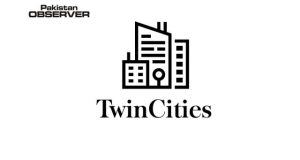Governance weaknesses and problems in Pakistan are direct outcome of prevalent duality in its power structure, run by different de jure as well as de facto entities.
This duality bearing on civil and military establishments, in non-compliance with constitutional obligations, has thrown the democratic political system out of equilibrium. This aspect of the political system, along with several others, was discussed in the Grand National Dialogue on Pakistan’s political system and governance, organized jointly by the Institute of Policy Studies and Islamabad Policy Research Institute .
The dialogue was chaired by Khalid Rahman, chairman IPS and moderated by Dr. Syed Tahir Hijazi, senior academic and former Member (Governance), Planning Commission of Pakistan chairman IPS. The trichotomic power branches have failed to fulfil their constitutional obligations as a result of the pseudo-parliamentary system of Pakistan, which has some presidential features. This, along with the lack of political will and duality of the political system, doesn’t befit the constitutional values, argued Ahmad Bilal. In addition to these fissures, as indicated by Abu Ahmed Akif, there are inherent flaws in political practices and the organizational structure of the system, leaving little or no space for governance. The anomalies of the system, ranging from the buildup of elitist capture to the electoral flaws and the bureaucratic role, have removed any margin for reforms and governance strategy, he pointed out.
Reckoning on this, Dr. Rashid Aftab rested his view that within the three-tiered governance structure – federal, provincial, and local government – a prominent trend has been the absence of devolution of power according to change in time, due to reluctance of the provinces.
Particularly relevant, or rather the foundation, of the political system, is the electoral process, the reform of which is pivotal to democratic governance. Nazeer Ahmad Mahar shared his findings on electoral reforms, and stated that the 2018 elections, conducted under a rather empowered ECP, saw a 30% increase in voter registration and turnout.










